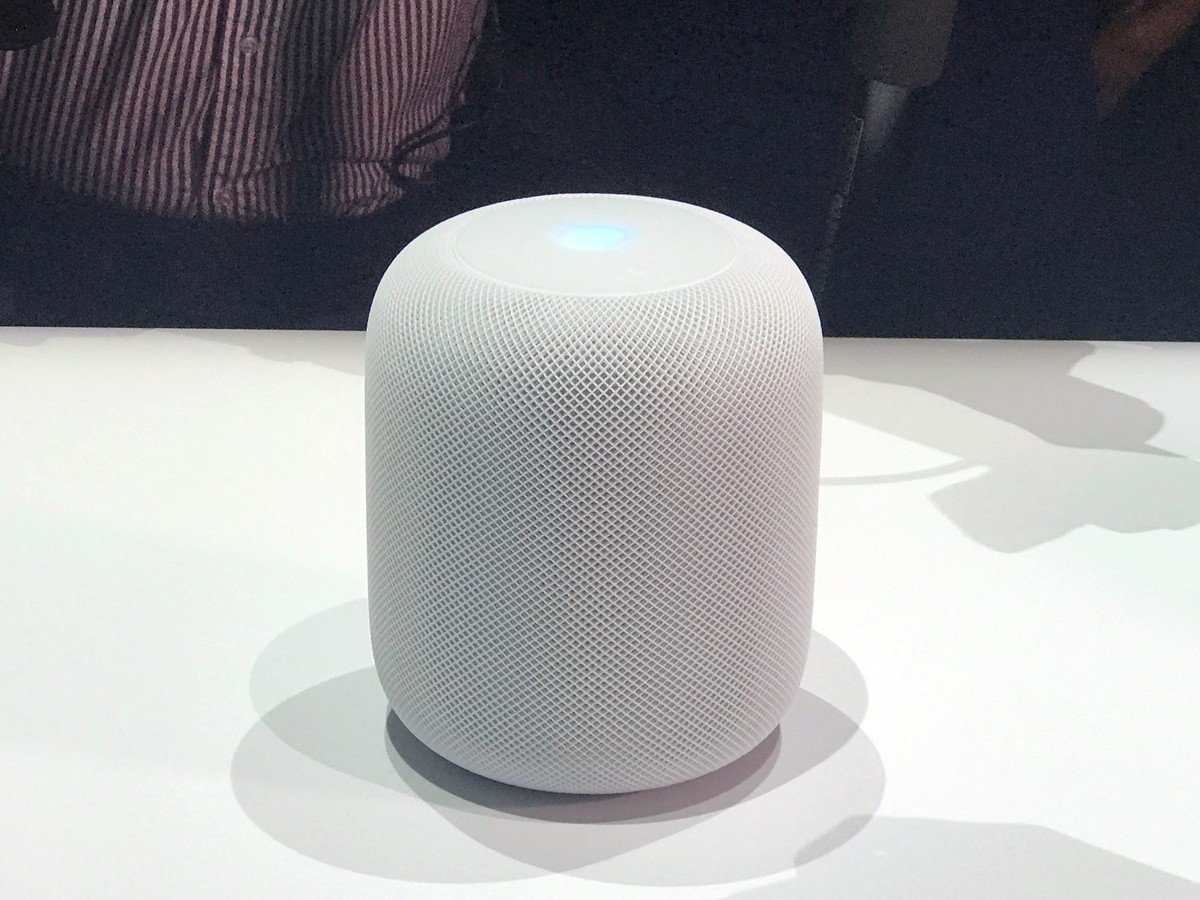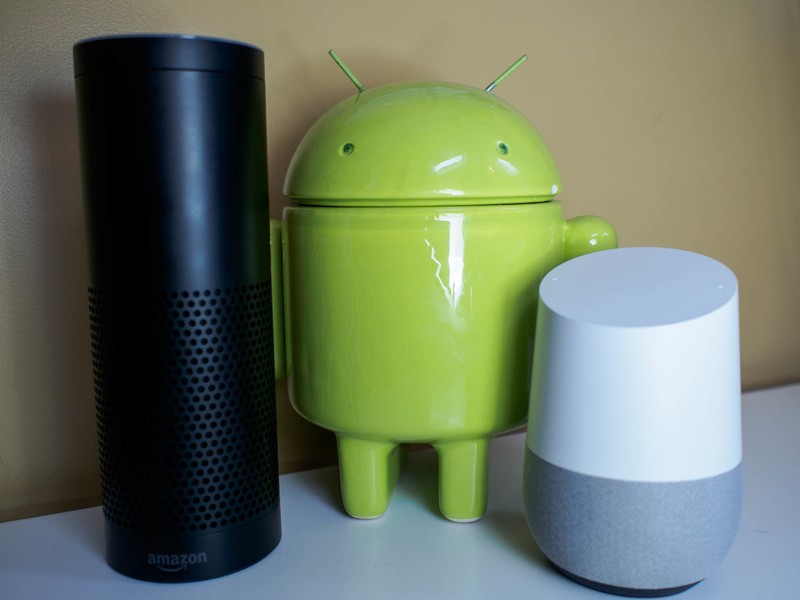Google needs to strike the iron while it's hot — and before Apple HomePod launches

Everyone was expecting to see a Siri-powered version of the Amazon Echo at the end of Apple's 2017 WWDC keynote. And HomePod is exactly that, just a little more Apple-ish.
Machines in the living room that listen to you talk and do stuff are tough to get right. They have to look good and be easy to operate, but most importantly they need to give us a reason to want to put it there in the first place. Arguably, both Amazon and Google have built products that fulfill these requirements — and now, seeing a miniature cooling tower perched on the coffee table, ready for us to tell it to play a song or ask about the weather, isn't anything odd. I have both, and I'm sure plenty of the people reading this do, too.
Turning on a light or playing a song is easy and we want more than easy.
The tricky part is doing more. When the Echo first launched it was a cool way to do things that weren't hard to do. Give a simple command and get an answer — something we'd been doing on our phones since forever. As the price came down and the features grew, it turned into a thing most everyone finds useful, and it's popular. At least for a miniature cooling tower that listens to you. When Google was able to slide Google Home into the picture with a hook — something smarter that "knows" you because it's been analyzing all of your data since you first got your Gmail account — expectations and terminology changed. We started to hear about Machine Learning any time more than one developer was in the same room.
Machine Learning is a real thing, but it's not learning the way you think. A great example is a Nest Thermostat. Nest doesn't use the term Machine Learning at all even though that's exactly what is going on when it learns when you get home so it can have the house the right temperature for you. If it sees the motion at the front door often enough, it can then check the times and calculate exactly when it should turn on the furnace or the AC. It "learned" when to do it. Machine Learning is really just very creative programming that can analyze a ton of data. A good group of developers can then do some amazing stuff with that data. Amazon, Apple, and Google all have very good groups of developers.
Machine Learning is really just smart developers writing smart code.
Google has all the data. We trade it away because it offers stuff we love to use. Google Assistant is far ahead of any other product when it comes to being "smart" and personal, but things are still in their infancy and none of these personal assistants are what we envisioned when we saw the first demos. Developers need to keep tweaking the algorithms that collect and parse the data, can get new data, and find new ways to interpret the data it collects. Apple doesn't think it's ready yet. And it's right.

Apple collects most of the data a smart Siri speaker will use from Siri itself. It can cross reference anything with other Apple services we use, but really that means it's limited to Apple Music and maybe iCloud. Apple has no Gmail or search engine we can sign into and provide that juicy data so it has to depend on smarter algorithms and engineers that can create them and do things with what it collects. That means it faced a choice — how and when to introduce its own smart home device to compete with Amazon and Google.
Apple has no search engine so it depends on better programming that can do more with less. But Google has mountains of data to use right now and doesn't have to wait.
I think Apple made the right choice. HomePod has a funny name and looks like a cat scratching toy, but as a connected and "smart" speaker it can work exactly as advertised. Don't be fooled, though. You don't put an A8 processor in a speaker unless you have bigger plans. Even if you're Apple.
Be an expert in 5 minutes
Get the latest news from Android Central, your trusted companion in the world of Android
Right now the HomePod (I'll never get tired of saying HomePod) is a push to make us use Apple Music. That's not a bad business decision. By all hands-on accounts, it offers "premium" sound when compared to other tiny speakers in tiny enclosures, has some impressive audio modeling to try and fill the room, and can work in tandem with other HomePods to offer a full house worth of music. That's a big draw to people who want to listen to Apple Music so it's going to be instantly profitable. But when Apple can effectively leverage the data it has to make it do more, it will update it to do more.
Apple will update the HomePod to do more when it can actually do more.
People want a product to do what it's supposed to be doing well. We're automatically happy when told we're getting an update that makes it do even more, and especially so if the update works as promised. Apple doesn't want a Maps 2.0 situation where the product simply needs more time — and more data — to be effective. But it is champing at the bit to make "Hey Siri" do all the cool stuff.
In the meantime, starting slow is smart, and the first step to taking the lion's share of an emerging market's money. That's how Apple likes to operate and it sells polish the same way other companies sell features. Google can use this time to their advantage, though.
HomePod is great for Google and Amazon (and eventually Microsoft). Apple can do one thing nobody else can — grab everyone's attention and take a cool thing mainstream. Google just needs to use the time when it has a product that's more capable and less expensive and try to grab the numbers. "Put a Google Home in every home" has to be on someone's task list, and keep pushing forward with the code behind how it works. We need to see a major improvement that's not only filled with useful things but actually works as advertised. And we need to see it before HomePod launches in December. And I'm betting we will.

Jerry is an amateur woodworker and struggling shade tree mechanic. There's nothing he can't take apart, but many things he can't reassemble. You'll find him writing and speaking his loud opinion on Android Central and occasionally on Threads.
